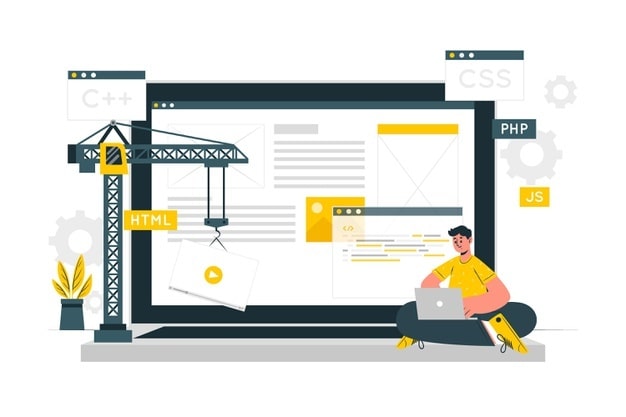








Technology stands as a transformative force for organizations—a calling we embrace wholeheartedly. Our joy lies in empowering businesses like yours to become pioneers of disruption. As thought leaders and experts in our field, we take pride in our mastery of technology.
Our reach extends globally, equipping us with the capability to harness technology as a valuable asset, enabling our clients to flourish and expand. We leverage technology to aid you in achieving your objectives and fostering stronger connections with your clientele. Our focus isn't solely on technology; rather, we prioritize deploying the optimal solution for every scenario. It's about utilizing technology to revolutionize enterprises, drive profitability, challenge conventional thinking, and reshape markets. At DIS, we deliver bespoke technological solutions tailored to enhance your business.
We've evolved into a global powerhouse, equipped with the ability to leverage technology as a valuable asset for our clients' growth and expansion. Our utilization of technology is geared towards aiding you in reaching your goals and fostering stronger customer relationships. Our focus isn't solely on the technology itself; rather, we prioritize deploying the best solution tailored to each situation. Our aim is to harness technology that transforms enterprises, boosts profits, challenges conventions, and disrupts markets. At DIS, we offer select technologies to drive your business forward.
The MERN stack's lightweight and efficient design patterns, such as Model/View/Controller (MVC), have ushered in a new era of constructing powerful, swift, and scalable online applications. With MERN components, even the most complex projects can be developed swiftly and delivered faster than ever before. MERN Stack represents the future of online and app development, offering comprehensive web app solutions from client to server to database utilizing the technologies mentioned above.


The MEAN stack, comprising MongoDB, Express.js, AngularJS, and Node.js, offers a comprehensive and modern approach to web development. At its core, MEAN emphasizes the use of JavaScript throughout the entire development stack, ensuring a consistent and efficient development experience. MongoDB, a NoSQL database, provides flexibility in data modeling and scalability, enabling developers to adapt quickly to changing requirements and handle large volumes of data efficiently. Express.js, a minimalist web application framework, simplifies the process of building robust and scalable server-side applications with its streamlined routing and middleware features. AngularJS, a powerful frontend framework, facilitates the creation of dynamic and interactive web applications with its two-way data binding and modular architecture. Finally, Node.js, a server-side JavaScript runtime environment, enables developers to build scalable and high-performance server-side applications with its non-blocking I/O model and event-driven architecture.
The MEAN stack offers several advantages, including a unified development language and a rich ecosystem of libraries and tools. By using JavaScript for both frontend and backend development, developers can maintain consistency in coding practices and collaborate more effectively across teams. Additionally, the MEAN stack leverages JSON (JavaScript Object Notation) for data exchange between the client and server, providing a lightweight and standardized format that simplifies data handling and improves application performance. With its focus on scalability, performance, and flexibility, the MEAN stack is well-suited for building modern web applications that can adapt to the evolving needs of businesses and users alike.


The LAMP stack, an acronym for Linux, Apache, MySQL, and PHP/Python/Perl, has been a cornerstone of web development for decades. At its foundation, Linux provides a robust and stable operating system that powers the server environment. Apache, an open-source web server software, serves as the backbone of the LAMP stack, handling HTTP requests and serving web content efficiently. MySQL, a popular open-source relational database management system (RDBMS), offers a reliable and scalable solution for storing and managing data. Finally, PHP, Python, or Perl serve as the server-side scripting languages, enabling dynamic content generation and interaction with the database. Together, these components form a versatile and flexible stack that has been widely adopted for building a wide range of web applications, from simple blogs to complex enterprise systems.
The LAMP stack offers several advantages, including its open-source nature, ease of use, and extensive community support. As an open-source stack, LAMP provides developers with access to a wealth of resources, libraries, and tools, allowing for rapid development and innovation. Additionally, the LAMP stack is highly customizable, with developers having the flexibility to choose from a variety of technologies and configurations based on their specific requirements. Moreover, the LAMP stack is platform-independent, meaning it can run on a wide range of operating systems, including Linux, Windows, and macOS, making it accessible to developers regardless of their preferred development environment. With its reliability, scalability, and versatility, the LAMP stack remains a popular choice for building robust and scalable web applications.


Thanks to its robust features and the capability to tap into native functionalities on each platform, React Native has emerged as the leading choice for crafting sophisticated hybrid apps that offer a seamless user experience. React Native, or RN for short, stands as a popular JavaScript-based mobile app framework enabling the creation of native-looking iOS and Android applications. With this framework, developers can build applications for various platforms using a single codebase.
What sets React Native apart from other cross-platform app development approaches like Cordova or Ionic is its utilization of the host platform's native rendering APIs. Unlike methods relying heavily on webviews to display mobile applications built with a mix of JavaScript, HTML, and CSS, React Native leverages the standard rendering APIs of the host platform. While the traditional approach can be effective, it comes with performance limitations and often lacks access to native UI elements of the host platform.


Let’s chat about your goals